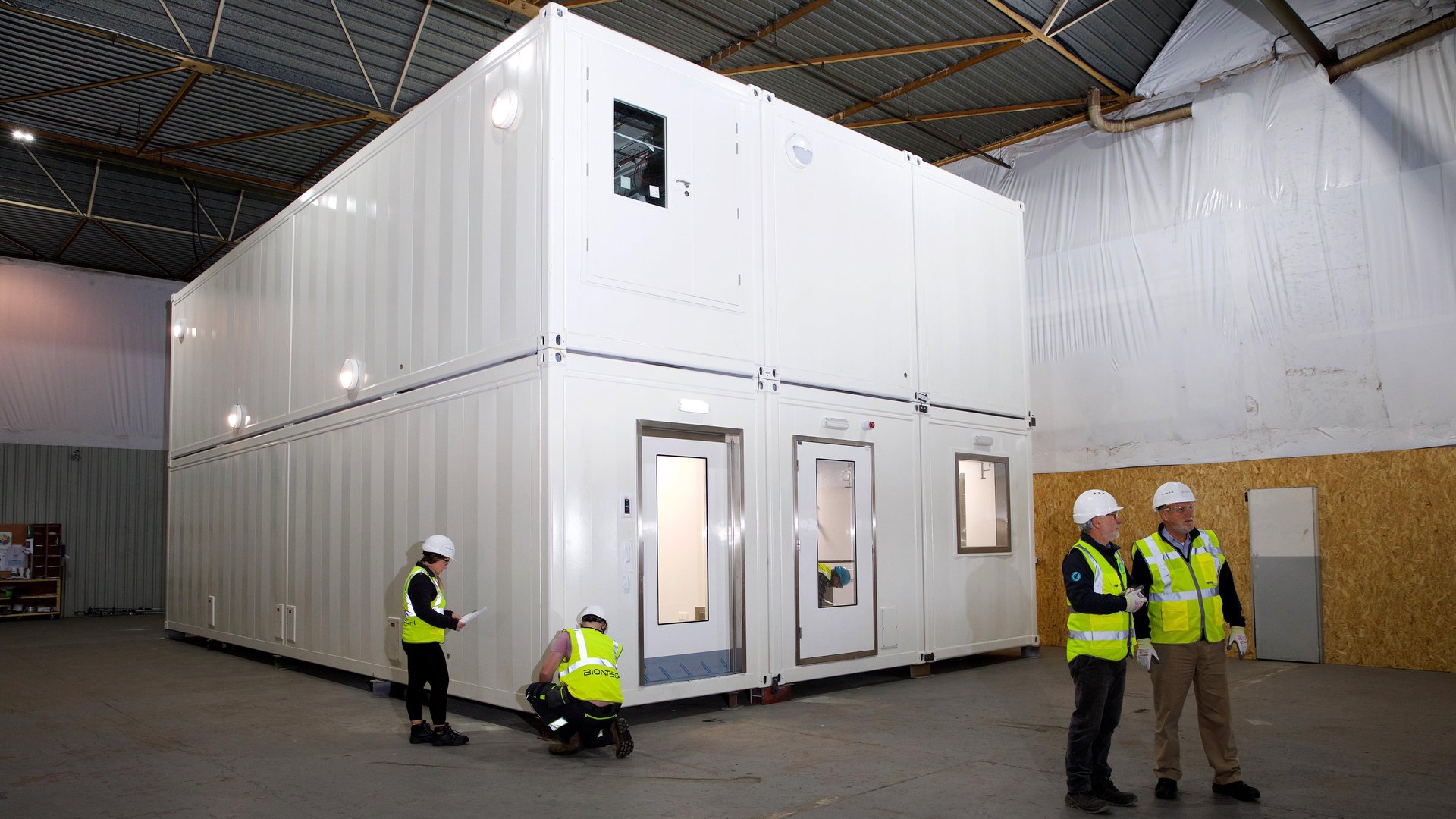BioNTech is set to ship its first modular mRNA vaccine factory to Rwanda
The first BioNTainer, which will start producing mRNA vaccines in 2024, is ready to go to Kigali

BioNTech, the German biotechnology company that partnered with Pfizer to develop its covid vaccine, is set to ship its first modular mRNA vaccine factory to Rwanda.
The factory, called BioNTainer, is built in Germany, and consists of a module where production of the mRNA vaccine can be done in bulk. This allows BioNTech to bypass the quality challenges of setting up a factory with limited local technologies—and of sharing know-how related to mRNA vaccine production. Only the fill and finish will be done by local partners in Ghana and South Africa.
BioNTech announced last week that the six containers that comprise the module have been inspected and are ready for shipping to Kigali, and are expected to arrive within the first quarter of 2023. Vaccine production should start in early 2024, about a year after the container delivery.
A turnkey manufacturing facility
BioNTech had announced the plans for “turnkey mRNA manufacturing facilities” in February 2022, with plans to ship the first set of containers to Rwanda in the middle of 2022.
Progress was delayed, but once it’s up and running, the facility is expected to produce 50 million covid vaccine doses a year.
The German company has plans to ship another similar factory to Senegal, and potentially South Africa, where plans are underway for the development of a local mRNA vaccine hub.
At the same time, BioNTech has started construction of a traditional manufacturing facility in Kigali. That work began in June 2022.
First of a series
The vaccines manufactured in the BioNTainers will be sold in the African region on a not-for-profit basis.
BioNTech will initially staff the prefabricated facility in Rwanda, though it plans to eventually train and hire local workers.
The supply of BioNTainers is small against the need in the region for covid vaccines. But more modules could be added, expanding the capacity, and the facility potentially can be used for future production of other locally relevant vaccines. BioNTech is working on mRNA vaccine candidates for malaria and tuberculosis, for which it has already begun human trials.